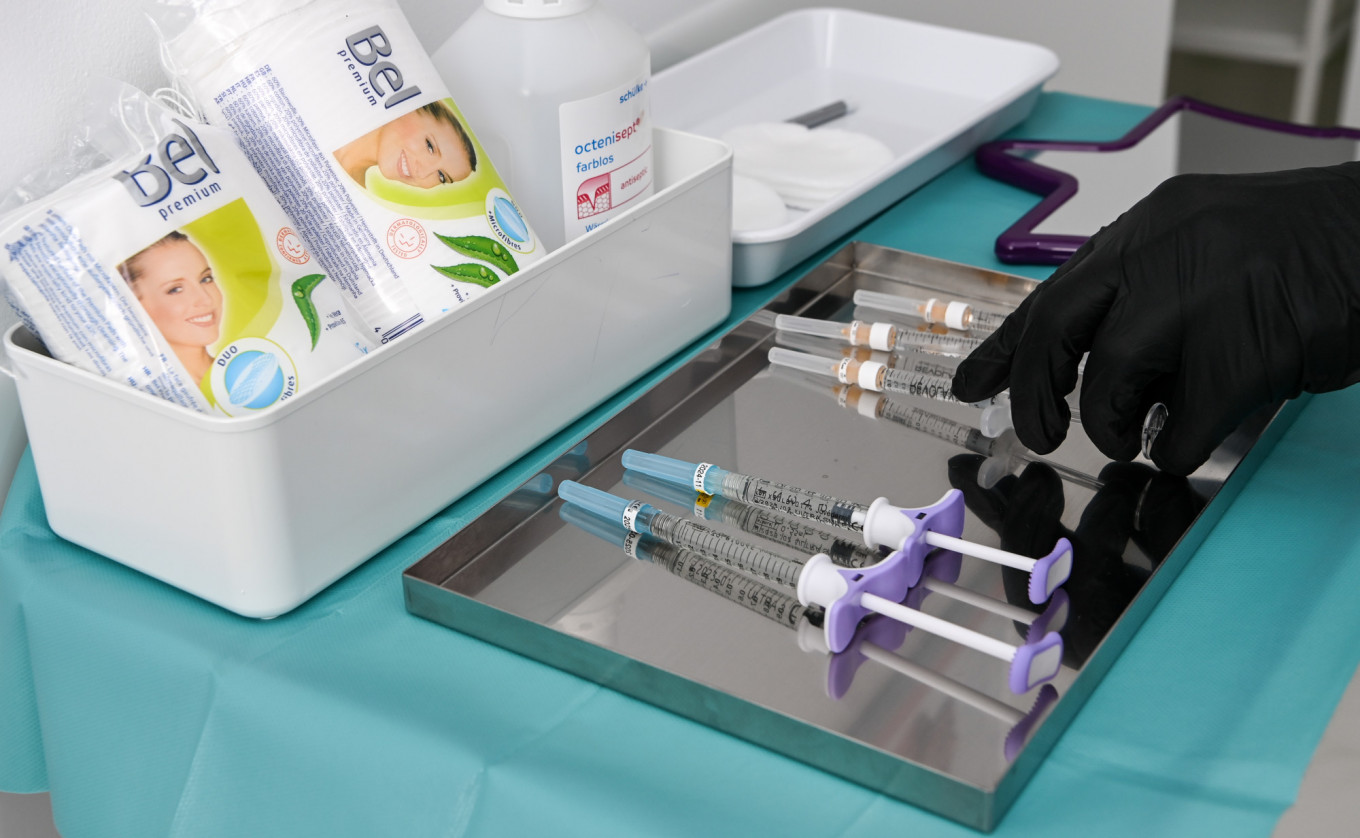
Russian clinics are bracing for a shortage of the wrinkle-reducing drug Botox amid a Western business exit over the war in Ukraine, the Kommersant business daily reported Thursday, citing pharmaceutical researchers.
Cosmetic and medical Botox imports saw a threefold drop to 74,500 units in January-March compared with the same time last year, according to the RNC Pharma consultancy.
“The dwindling supply of Botox is already causing concern among clinics,” said Yulia Frangulova, co-founder of Russia’s association of aesthetic medicine clinics NAKEM.
Health clinic chain Medsi told Kommersant its supplies of Botox and other injectable drugs would last three months.
Concerns were compounded by Botox maker AbbVie’s announcement in March that it had suspended operations of its aesthetics products, which accounted for a quarter of the Russia’s imports last year.
Russia imported 30% of its annual supplies of Botox and other anti-wrinkle drugs in November and December 2021, RNC Pharma’s director of development Nikolai Bespalov told Kommersant.
Two other wrinkle reduction drugmakers, France’s Ipsen and Germany’s Merz, have restored supplies after initially announcing similar suspensions, NAKEM’s Frangulova said.
RNC Pharma said Ipsen’s imports dropped by 31% and Merz by 3% so far this year, Kommersant reported.
Dwindling Botox imports coincided with a 12% year-on-year increase in demand for injections in January-April, according to NAKEM’s survey of 134 clinics.
Clinics are ready to switch to Russian wrinkle-reduction drugs, which scaled up production by almost 70% to 105,000 units this year, in case of serious supply disruptions or price hikes.
Medsi told Kommersant that prices have risen for domestic injectable drugs.